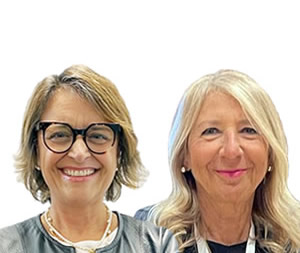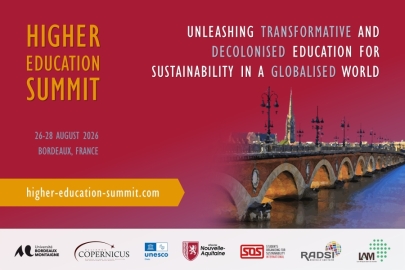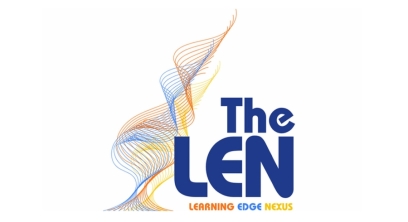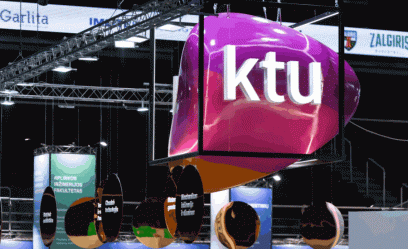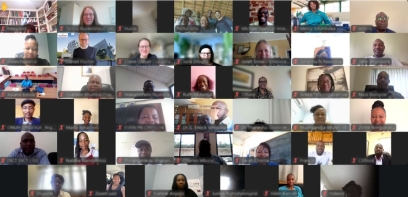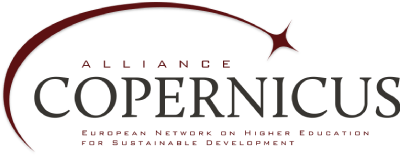#11 03/2023
University of Padua
Monica Fedeli (Vice Rector of the Third Mission and Regional Relations)
Gioia Grigolin (Head of Communication and Marketing)
| _ |
"The educational function that a university performs today does not end with ensuring that the new generations receive the most complete, up-to-date and quality education possible, but has many implications and is constantly evolving." |
Mario Diethart (MD) In 2022 we met at the COPERNICUS Alliance's Higher Education Summit 2022 in Hasselt. Shortly thereafter, the University of Padua became a member of the network. What convinced your university to join the COPERNICUS Alliance?
Monica Fedeli The University of Padua is strongly committed to its role as an agent of social, cultural and economic change, a role it pursues through all its institutional missions: education, research and public outreach. As a large, multi-disciplinary university, it has a wide range of courses covering all the issues included in the 2030 Agenda in various ways (it has been estimated that more than 50 % of the courses address at least one of the 17 SDGs). However, the educational function that a university performs today, in a context of profound climate and social emergency, does not end with ensuring that the new generations receive the most complete, up-to-date and quality education possible, but has many implications and is constantly evolving. The University has invested in many projects to innovate its teaching but strongly feels the need to network on these issues at an international level with the aim of sharing and co-constructing ideas and good practices. For these reasons, it considered participation in the COPERNICUS Alliance to be of high added value.
MD Indeed, we are convinced that promoting cooperation instead of competition is the way to go. Being founded in 1222, the University of Padua has a long tradition and certainly has a lot to share! With currently more than 70,000 students and employees, it positions itself as a modern and progressive university committed to the United Nations 2030 Agenda for Sustainable Development. Can you explain how this is reflected in your vision and mission as well as in your daily activities on campus?
Gioia Grigolin 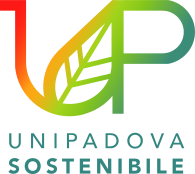 The University of Padua's commitment to sustainable development in its social, economic and environmental dimensions is long-standing, and is rooted in a tradition that has seen it at the forefront of promoting "a culture founded on universal values such as human rights, peace, environmental protection and international solidarity" since its origins (Art. 1.2 of the Statute). In line with this vision, in 2017 the University started a process of systematization of the policies and initiatives already in place, promoting the ”UniPadova Sostenibile” project as a container and catalyst for all the actions carried out in the various areas of sustainability.
The University of Padua's commitment to sustainable development in its social, economic and environmental dimensions is long-standing, and is rooted in a tradition that has seen it at the forefront of promoting "a culture founded on universal values such as human rights, peace, environmental protection and international solidarity" since its origins (Art. 1.2 of the Statute). In line with this vision, in 2017 the University started a process of systematization of the policies and initiatives already in place, promoting the ”UniPadova Sostenibile” project as a container and catalyst for all the actions carried out in the various areas of sustainability.
MD The “Sustainable UniPadova” project sounds interesting! Can you tell us more about how it came about and what it implies?
Gioia Grigolin A fundamental moment in this phase of consolidating a culture of values and managerial models oriented towards reducing the impact on the environment and promoting widespread wellbeing was the drafting of the Sustainability Commitments Charter (2023-2027). The Charter has a five-year horizon (now in its second edition), which encapsulates the University's vision and objectives, breaking them down into five lines of action. These apply to the various areas in which environmental sustainability is expressed, as well as social and economic sustainability (resources, environment and energy, mobility and transport, wellbeing, inclusion, equal opportunities, education), and furthermore to transversal areas such as membership of national and international networks, research, enhancement of cultural heritage, sharing knowledge and good practices with the territory, communication, monitoring and reporting. The Charter integrates with the University’s planning documents on social sustainability, such as the Gender Equality Plan and the Energy Plan. Finally, the alignment with the Strategic Guidelines 2022-2027 and the link with the Integrated Business and Organisation Plan will be ensured, which will annually transform its actions into strategic objectives.
MD You mention monitoring and reporting. Is there a public document that gives an overview on the University’s sustainability activities?
Gioia Grigolin The University of Padua is committed to report on its sustainability performance with the annual publication of the Sustainability Report, with the dual objective of establishing a transparent dialogue between the university community and the territory, and of supporting the strategic choices of the University in terms of sustainability, monitoring their impact and effectiveness.
MD The connection to the territory and interaction with the community seems to be of high value for University of Padua. Monica, your job description as “Vice Rector of the Third Mission and Regional Relations” also reflects that. Can you explain what are your priorities in this function and perhaps highlight examples of activities (transdisciplinary projects, Living Labs etc.)?
Monica Fedeli Social impact represents a relevant strategic dimension of the University. We develop and implement policies, projects and actions that foster the transmission of knowledge and have a cultural, economic and educational impact on citizens, society and the local, regional, national and international territory.
To this end, the University intends to develop and promote a solid alliance with institutions and society in a variety of areas, from health promotion to lifelong learning, from the communication of science to the protection and accessibility of its vast historical, artistic, book and museum heritage. The University's priorities in this field for the next six years are:
- To enhance the Athenaeum's responsibility and social impact at a local national and international level, with particular attention to social vulnerability;
- To promote strategies and actions aimed at decreasing the mismatch between the skills of professionals and the demands of the market;
- To foster and consolidate academic entrepreneurship through the creation and growth of spin-offs and start-ups and actions that enhance the employability of students;
- To encourage and consolidate technology transfer, patenting of research results and the use of patents and scientific know-how;
- To make university museums inclusive places for sharing knowledge and encouraging access to the university's historical-artistic-cultural heritage, including library services;
- To enhance university medicine and veterinary care for the wellbeing of society.
One ongoing project that I would like to mention to concretely exemplify the University's commitment in this field is the General Course 'Knowing, Promoting, Practicing Sustainability' that the University is developing in close collaboration with the Municipality of Padua and other bodies. The course aims to create awareness among students, but also citizens, about the impact that our choices and lifestyles have on the well-being of people and the environment. The course will be multidisciplinary and open transversally to students enrolled in all degree courses, staff and citizens.
MD It is inspiring how University of Padua implements sustainability at strategic and operational level. Many thanks for this conversation!
Contact Monica Fedeli:

